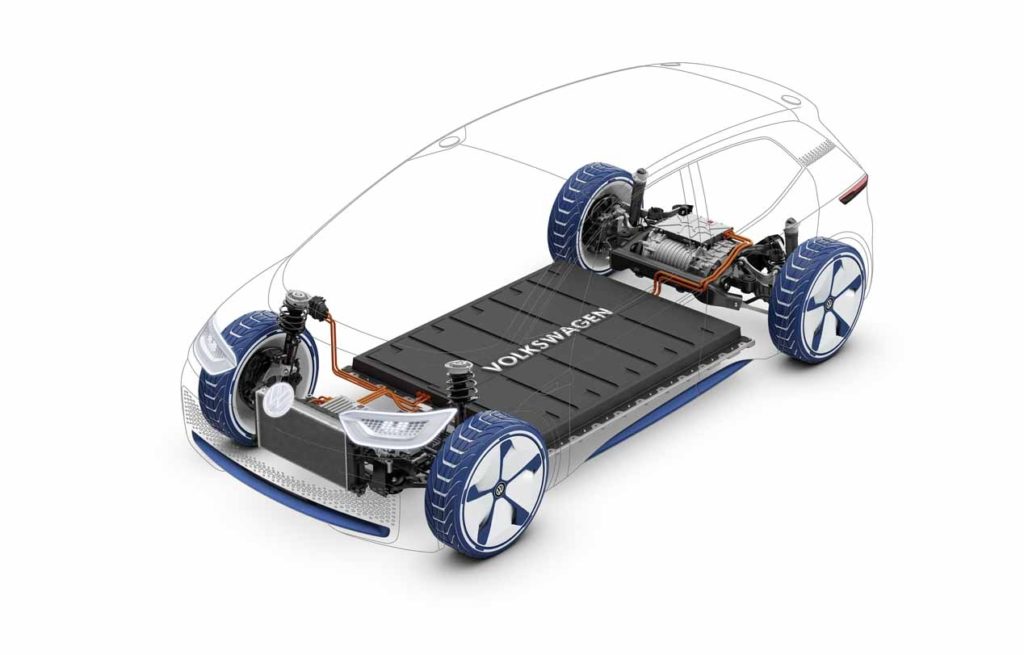Volkswagen's ambitious goal has always been to develop a unified EV platform that caters to vehicles of all sizes, from compact city cars to luxurious SUVs. Additionally, the company aimed to introduce state-of-the-art software enabling exceptional efficiency and full autonomous driving capabilities. However, setbacks plagued this vision, evident in the challenges faced by the eighth-generation Golf and the ID.3, Volkswagen's first modern EVs. These setbacks ultimately pushed back the initial launch timeline of the SSP platform to a range between 2028 and 2030.
At a recent capital markets event, Oliver Blume made a resounding proclamation: the SSP platform will debut in 2026, offering remarkable advancements in power and capability. The platform, which was initially anticipated to provide vehicles with up to 1,100 horsepower (820 kW/1,115 PS), will now deliver an astonishing 1,700 horsepower (1268 kW/1,724 PS) according to reports from Autocar. Blume's commitment to this accelerated timeline represents a significant milestone for the CEO and the entire Volkswagen Group.
Oliver Blume emphasized that the SSP architecture strikes a harmonious balance between scale, standardization, differentiation, and speed. With up to 75 percent coverage of material costs for battery electric vehicles (BEVs), compared to a mere 10 percent for internal combustion engine (ICE) vehicles, architectures play a pivotal role in driving future profitability. Blume's remarks highlight the critical importance of this cutting-edge platform in shaping Volkswagen's success in the evolving automotive landscape.
In addition to groundbreaking performance, vehicles utilizing the SSP platform will benefit from significantly reduced charging times. Oliver Blume announced that these EVs will be capable of charging from 10 to 80 percent in just 12 minutes, less than half the time required by vehicles on Volkswagen's existing MEB EV platform. This remarkable feat will be made possible by Volkswagen's new universal cell architecture, which employs various chemistries tailored to different vehicle segments. For example, the affordable models will incorporate lithium-iron-phosphate (LFP) cells, while others will feature more advanced configurations.
Although the SSP platform serves as the foundation for all Volkswagen Group vehicles, it will accommodate diverse needs by allowing customization within each brand. Volkswagen will focus on developing the smallest version of the platform, primarily targeting their entry-level vehicles, while Audi will concentrate on the middle platform. Porsche, renowned for its high-performance cars, will take charge of creating the largest and most prestigious version of the platform. This tailored approach ensures that each brand can optimize the SSP platform to align with their specific market segment.
Volkswagen's new software, integrated into vehicles based on the SSP platform, will propel the industry toward enhanced autonomous driving capabilities. These vehicles are projected to achieve up to Level 4 autonomy, representing a significant leap in driverless technology while still retaining essential controls for human interaction. With this breakthrough, Volkswagen further solidifies its commitment to shaping the future of mobility and redefining the driving experience.
While the SSP platform's official launch is slated for 2026, there are intermediate milestones to anticipate. In 2025, the MEB platform, the precursor to SSP, will be upgraded to MEB+. Furthermore, we can expect the arrival of vehicles based on the performance platform, PPE, co-developed by Audi and Porsche, to begin as early as next year. These milestones underscore Volkswagen's dedication to innovation and the steady progression toward realizing their electrification vision.

